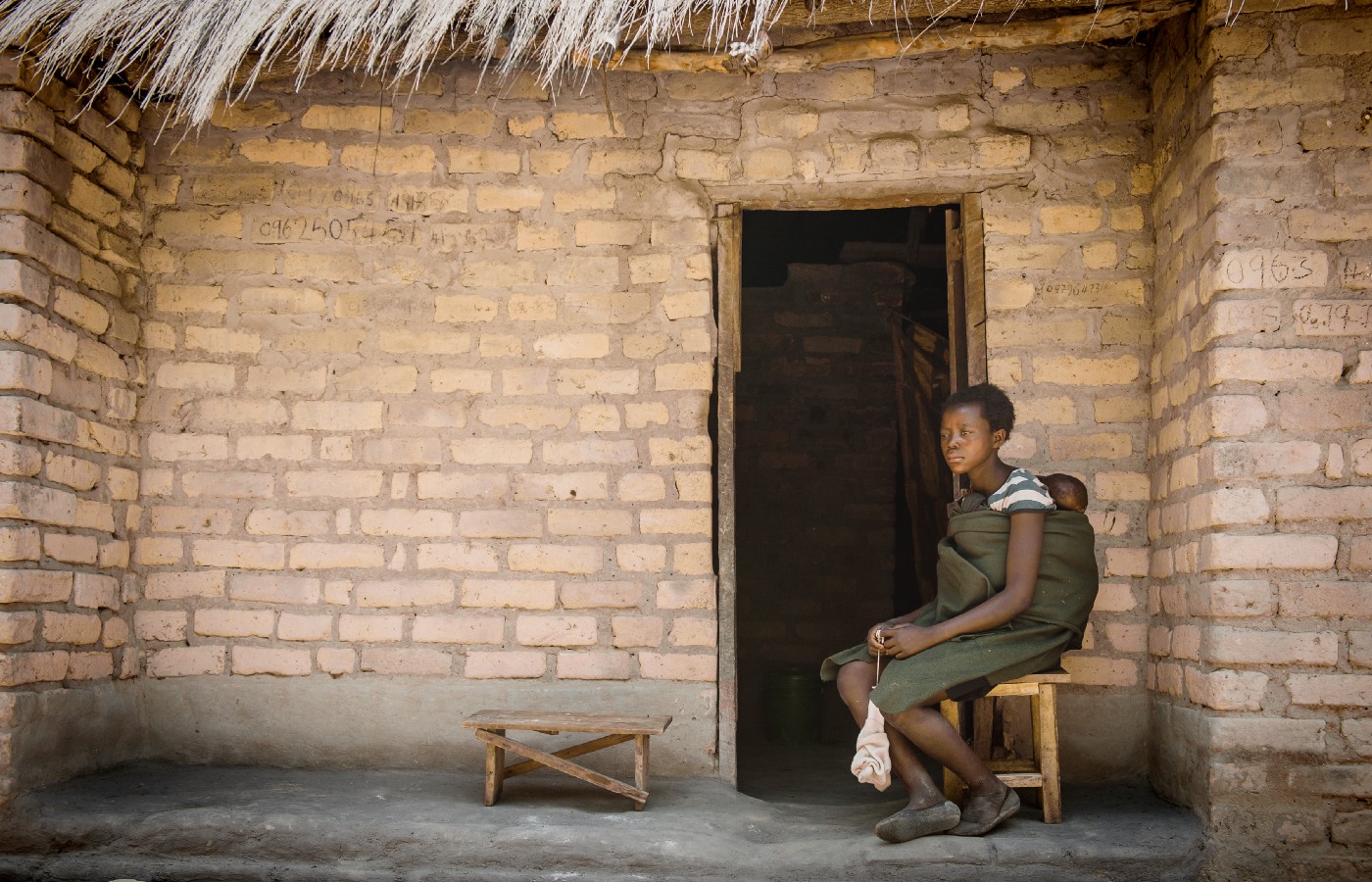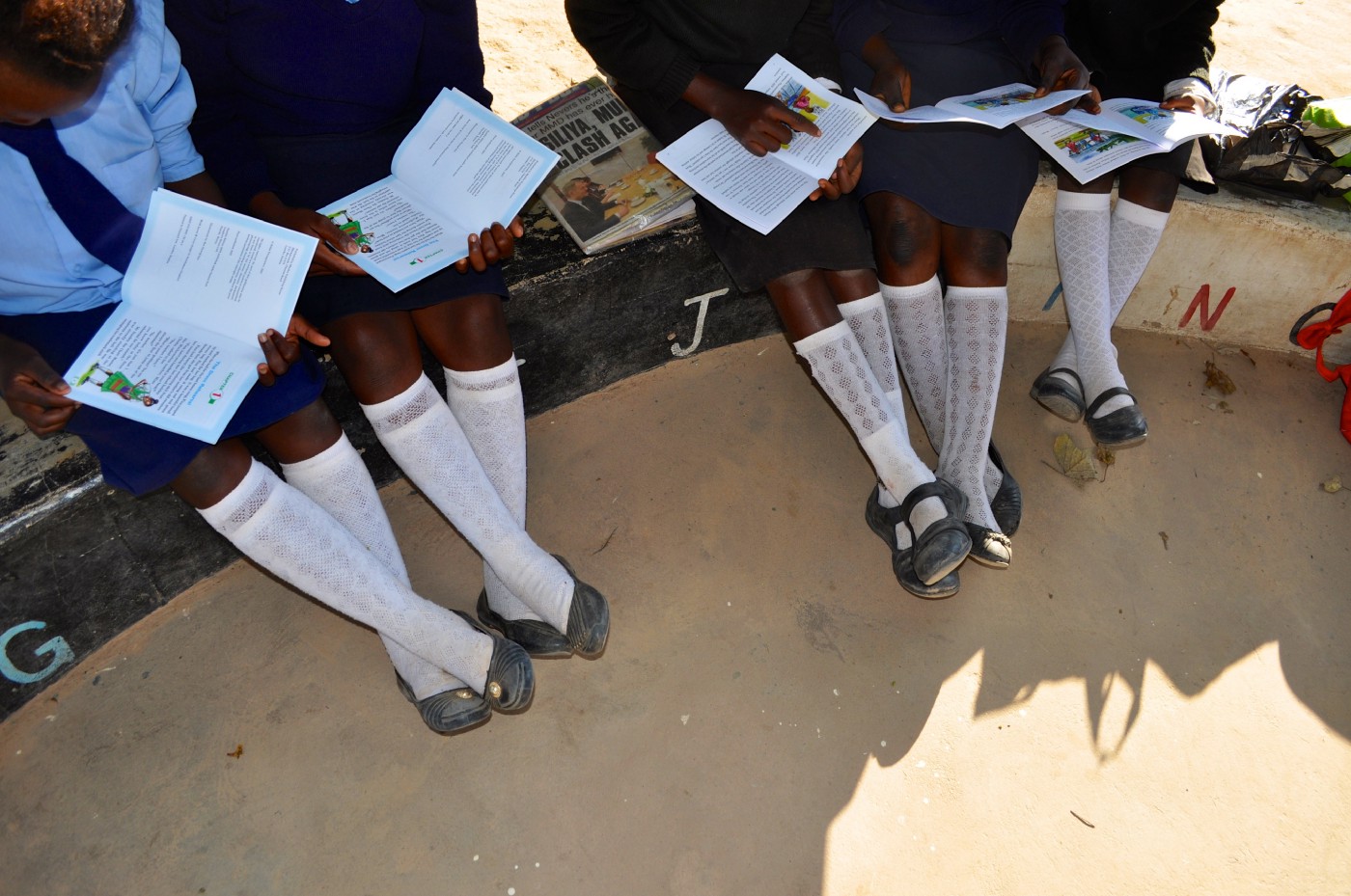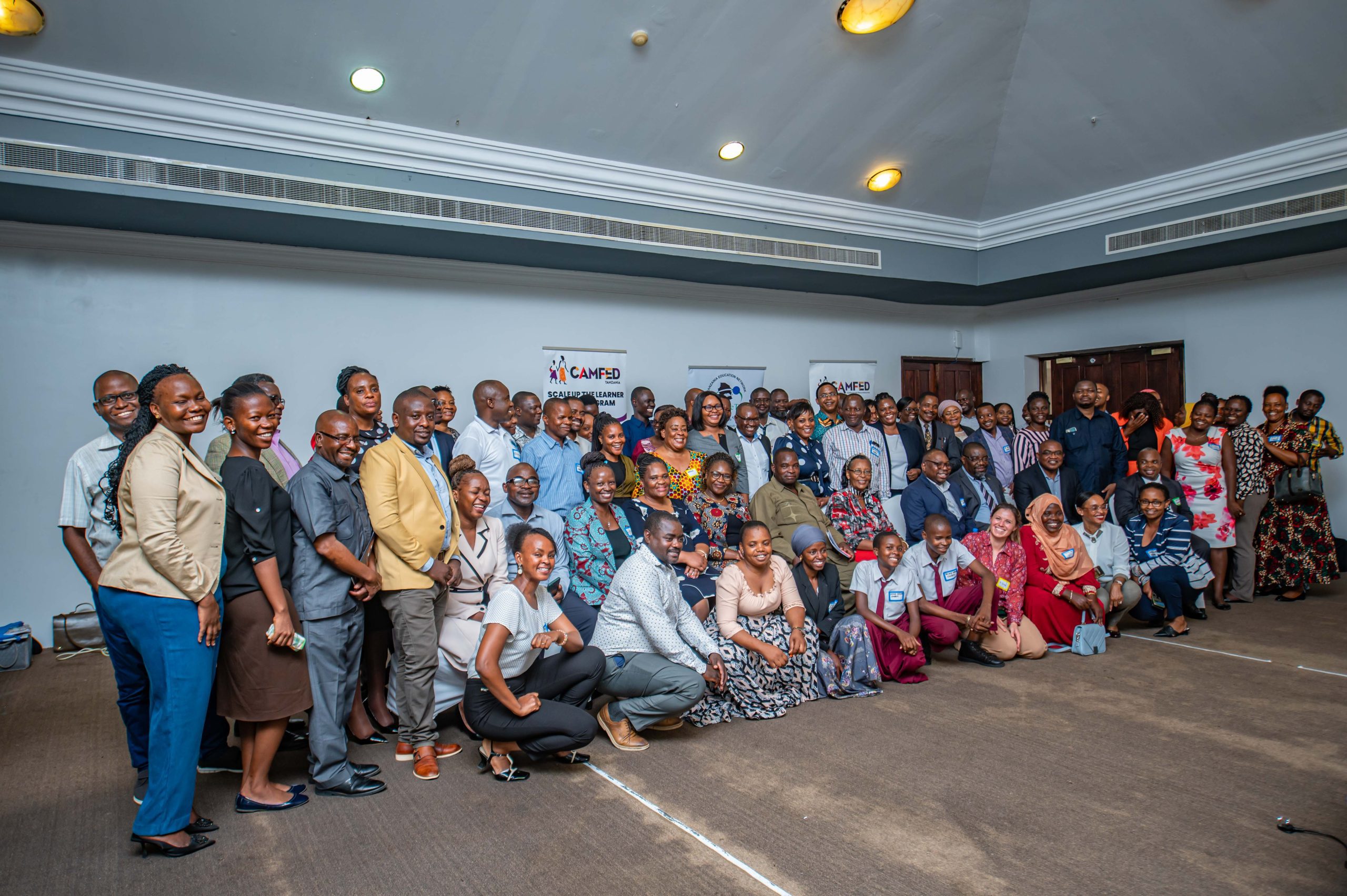When I follow up on girls from poor households who have dropped out of school, I find that around 20% have done so because of School Related Gender Based Violence (SRGBV) — violence resulting from gender stereotyping, discrimination and unequal gender relations.
SRGBV includes threats or acts of physical violence, bullying, verbal or sexual harassment, non-consensual touching, sexual coercion, assault and rape. GBV often spills over from communities into schools. It can sabotage children’s education and life chances in an environment where they should be safe and protected. Girls from impoverished rural areas in sub-Saharan Africa are especially at risk. I was one of those girls once.
Today I mentor marginalized girls. I can help build support networks to tackle SRGBV and protect girls’ rights at every level because I understand the fear, isolation and withdrawal that occurs when children are vulnerable, and the factors that make them vulnerable.
Girls’ lack of self-belief makes it so hard to learn, study and succeed in school
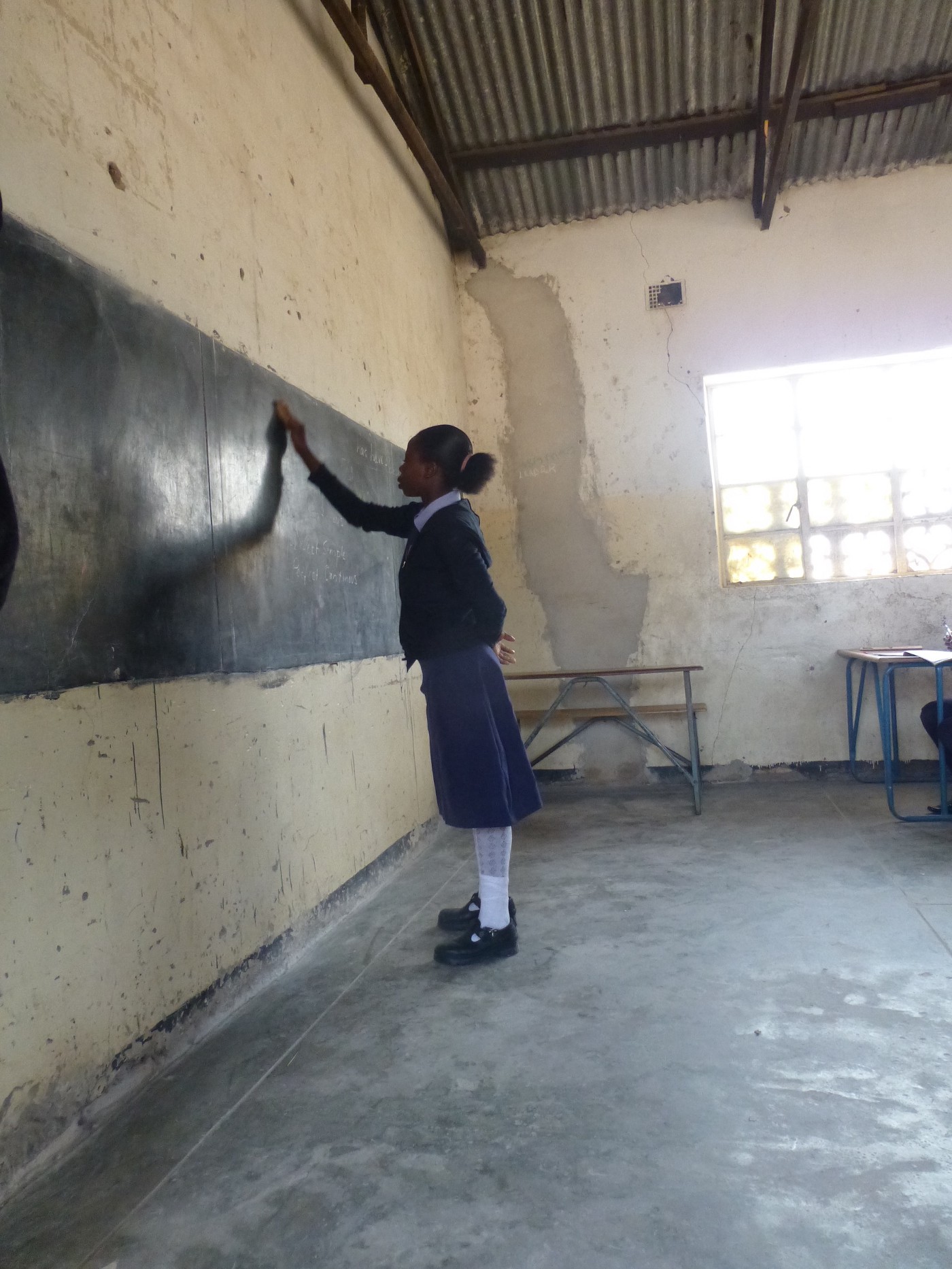
Photo: Camfed/P Hayes
Most of the girls I support are single or double orphans, engaged in a daily fight for survival. Many do not know or believe they have rights — the right to be at school, the right to learn, to be safe and protected. As they fetch the water and work the fields, they literally carry the burden for the family. Their worry for the next meal, and their lack of self-belief makes it so hard to learn, study and succeed in school. These girls are extremely vulnerable to sexual harassment. Those who abuse their authority know that girls at the margins are afraid to tell, have no one to turn to, and feel that it is their fault for somehow not controlling the situation.
The lack of school essentials makes girls vulnerable to sexual advances.
Poverty also sets girls visibly apart from their richer peers: A torn or dirty school uniform; no shoes; no money to buy food. I have seen the fear and isolation that results from bullying, as girls are mocked or shunned by children who do not want to study, sit or eat with them. This leads to a lack of concentration at school, absenteeism, or drop-out. And the lack of school essentials makes girls vulnerable to sexual advances from men offering food, clothes or school fees. Ironically this usually results in drop-out due to early pregnancy or child marriage. What follows is disease, domestic abuse and the perpetuation of the cycle of poverty.
School is where young people converge, and new ideas are forged.
In order to tackle SRGBV, then, we need to intervene at every level, starting at school. This is where young people converge, and new ideas are forged. The benefits flow back to the community.
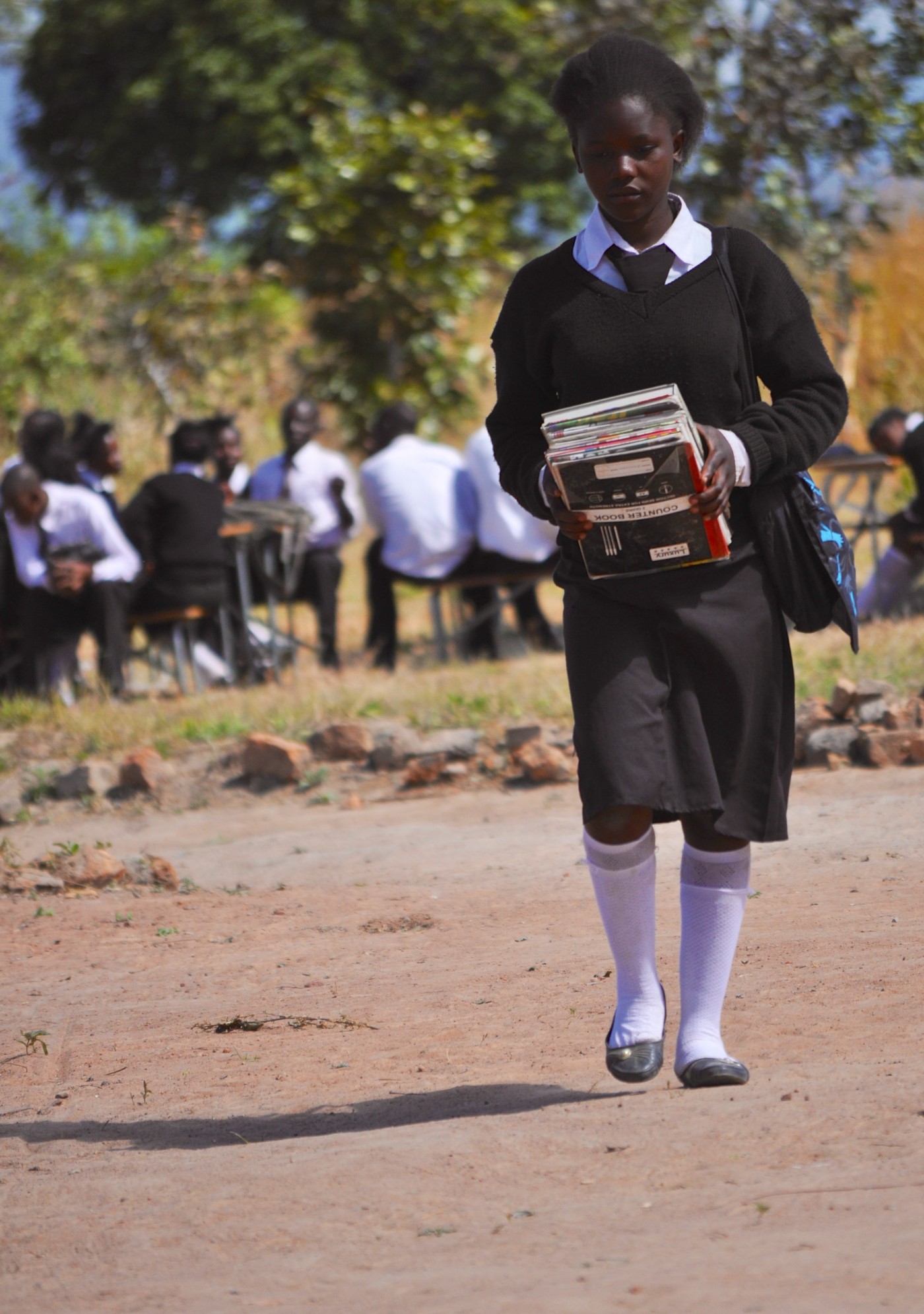
Photo: Camfed/P Hayes
1. Provide material school-going support to make girls feel valued and included, rather than isolated and discriminated against. I know the feeling of immense pride in wearing a new school uniform. This is often the only nice clothing a poor girl owns. I also know the difference a school meal can make to a child’s learning and retention.
2. Educate girls, school stakeholders and communities on child protection and child rights. The programs I am involved in use situational role play to help girls identify and report SRGBV, and poetry at school assemblies, calling on all those in authority to ensure that children are safe at school.
3. Set up support networks and referral structures that include peers, the school administration, parents and mentors. I work with student clubs focused on child protection, and holistic mentorship programs involving parent support groups and alumnae like me — peer role models whom girls feel confident to confide in, and who link them to services. We provide a trusted name and number to call if they suffer SRGBV, and include them in clubs and activities that build their confidence and agency.
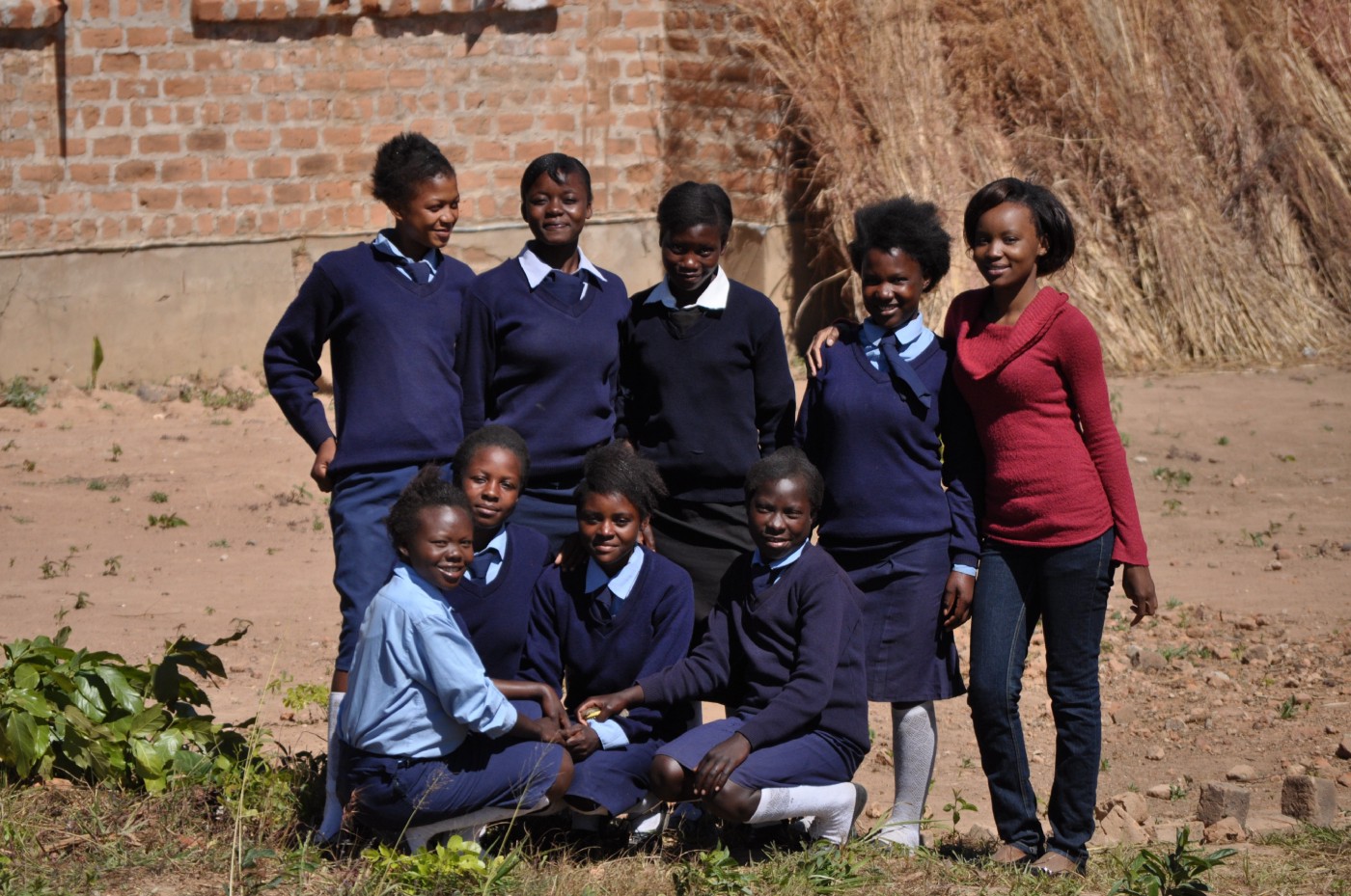
My CAMA (Camfed alumnae network) sister Phydes used to come to school in a faded, hand-me-down uniform, scared of being sent home for lack of school fees. Camfed provided the psycho-social and material support she needed. Now she is a teacher and such an important mentor and role model, helping to protect girls in her rural school in Zambia. Photo: Camfed/P Hayes
By creating holistic support and training networks, and working with different stakeholders to bring diverse perspectives and expertise to the table, we can create collective accountability. This is the way to make the world a safer place for girls, in and out of school.
This blog was first published by UNGEI to launch their #16Days of Activism Against Gender Violence campaign on November 25, 2016.
Find out what you can do to support Camfed’s movement for girls’ education and women’s empowerment in Africa.

Photo: Camfed/P Hayes
